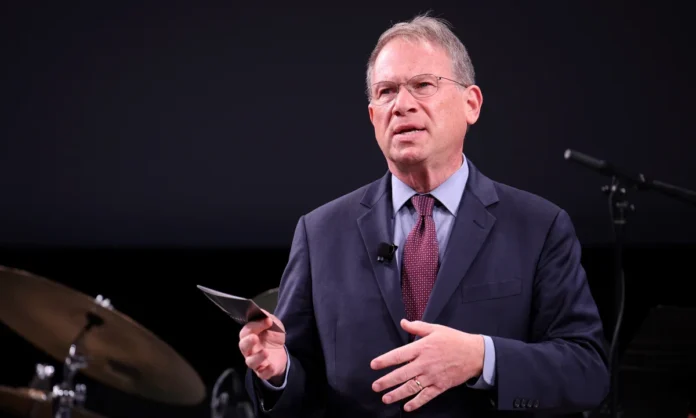Atlantic editor Jeffrey Goldberg has rejected National Security Adviser Mike Waltz’s explanation for accidentally including him in a sensitive Signal group chat about U.S. military strikes against Houthi rebels, calling the defense that his contact was “sucked in” through another person’s phone “completely implausible.” The incident has raised serious questions about the Trump administration’s handling of classified communications and national security protocols.
“This isn’t The Matrix,” Goldberg said in a televised interview, referencing the sci-fi film. “Phone numbers don’t just get sucked into other phones. The simple explanation is my number was in his phone because he had my number.” The leaked Signal messages, which included discussions of imminent military operations, were published by The Atlantic in late March, sparking concerns about security lapses within the administration.
President Trump has defended Waltz, denying reports that his adviser offered to resign over the breach. “No, he didn’t. There was no reason for him to,” Trump said, calling Waltz “a very good man” who would continue in his role. However, Goldberg disputed Waltz’s claim that the two had never met or communicated, stating flatly: “That’s simply not true.”
The National Security Council confirmed the authenticity of the messages and is investigating how Goldberg was added to the chat. Possible explanations range from accidental selection to more concerning scenarios like intentional sabotage. The breach has drawn sharp criticism from national security experts and lawmakers across the political spectrum.
Democratic Senator Mark Warner, a member of the Senate Intelligence Committee, called the lapse “dangerously careless,” noting that traditional military or intelligence personnel would be fired for similar security violations. “If you were this sloppy with classified information in any other administration, you’d be gone immediately,” Warner said. Even some Republicans, while praising the Yemen strikes as successful, have called for reviews of communication protocols.
Former Obama National Security Adviser Susan Rice described the leak as “extraordinarily reckless” and “unprecedented,” emphasizing that such breaches would never be tolerated in previous administrations. The incident has intensified scrutiny over the Trump team’s handling of sensitive information, with critics warning that such security failures could compromise operations and endanger lives.
As investigations continue, the “Signalgate” controversy highlights ongoing concerns about this administration’s adherence to established national security norms and procedures. The episode marks yet another instance where the Trump team’s unconventional approach to governance has clashed with traditional expectations of security and transparency.
For more political updates, visit DC Brief.


